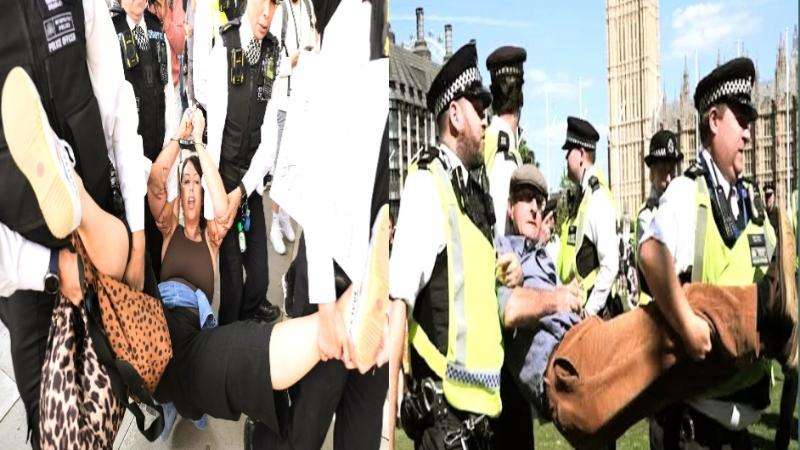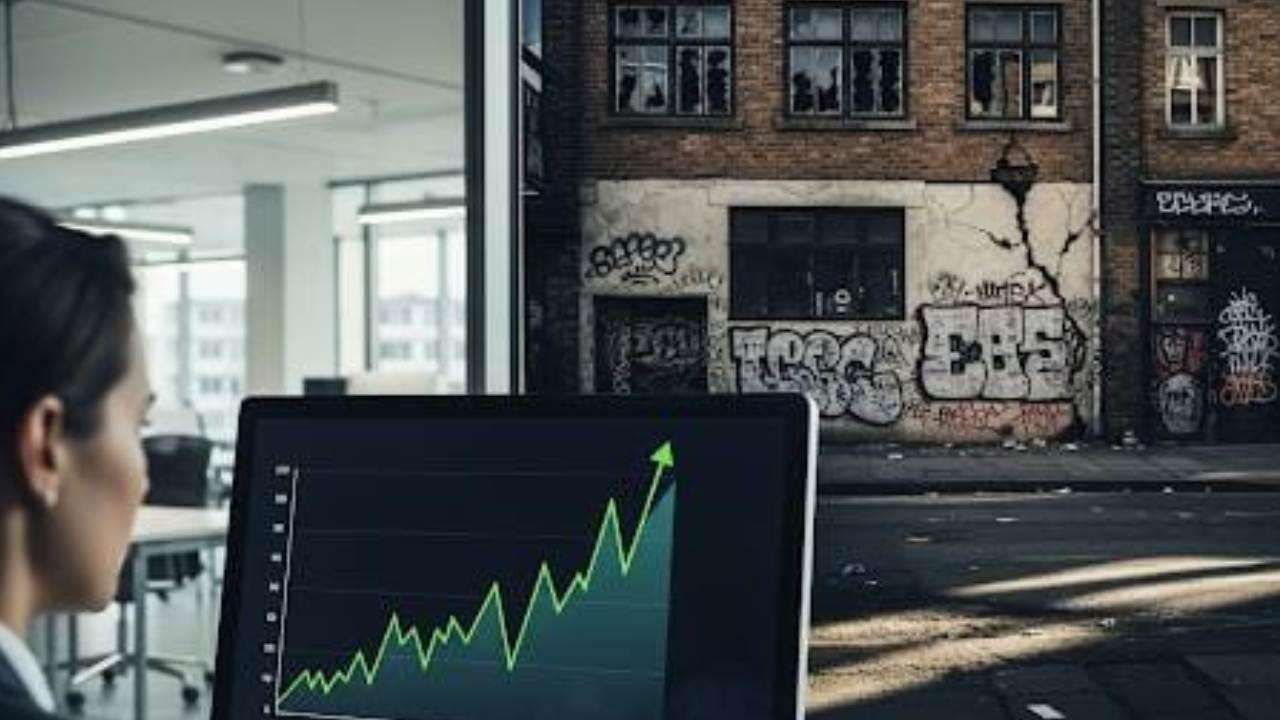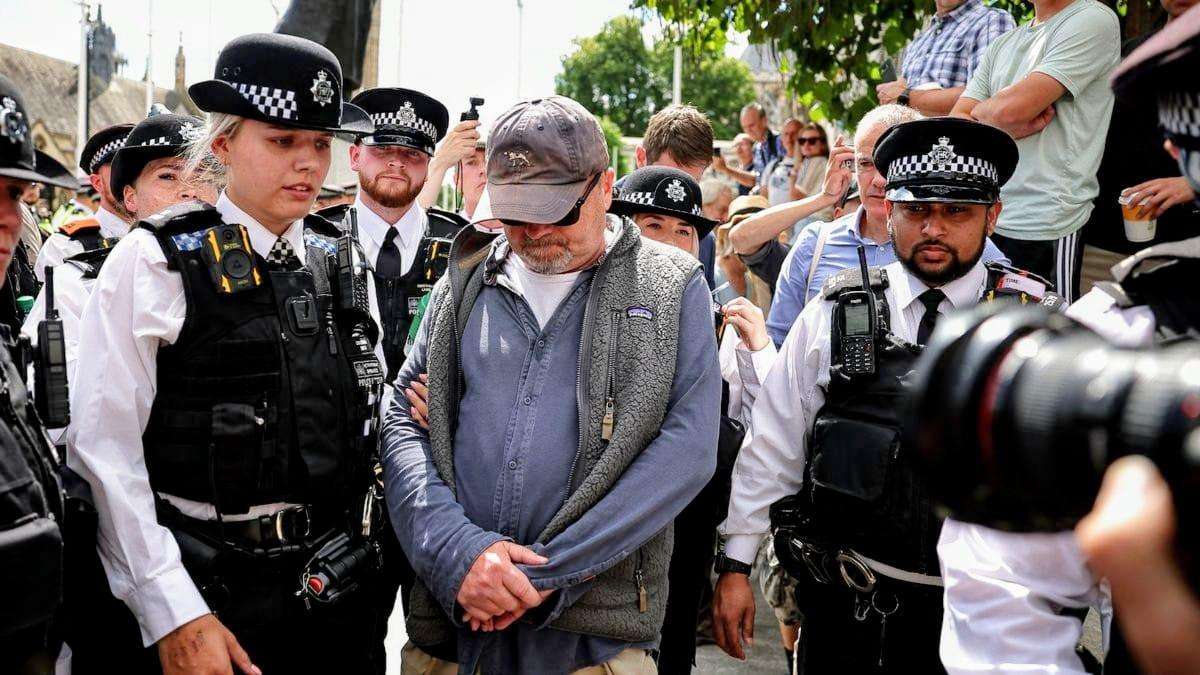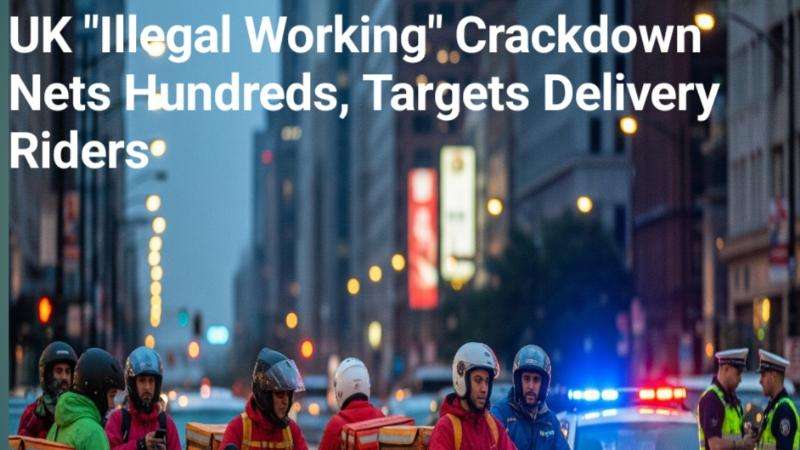The Right to Grieve, The Right to Speak: London Police Clamp Down on Pro-Palestine Voices
The heart of London became a scene of profound sorrow and defiance as the Metropolitan Police arrested 365 individuals for simply holding a placard. Their crime? Expressing solidarity with Palestine Action, a group newly proscribed under the UK's draconian anti-terrorism laws. This unprecedented crackdown has sent shockwaves through the British Muslim community and all who believe in the fundamental right to protest.
The demonstration, a poignant gathering in Parliament Square, was not a scene of violence, but of silent, determined witness. Among those arrested were individuals from all walks of life—NHS workers, Quakers, a blind wheelchair user, and even a former Guantanamo Bay detainee, Moazzam Begg. The inclusion of such a diverse group of people, many of whom are pillars of their own communities, underscores the deep moral conviction that drove them to defy this ban. They stood together not to incite violence, but to bear witness to the suffering of the Palestinian people and to challenge a law they believe is a blatant attempt to silence dissent.
The government's decision to proscribe Palestine Action, a move that places it on the same footing as groups like ISIS and al-Qaeda, is seen by many as a cruel and deliberate act of provocation. This hardline stance comes in stark contrast to the legal protections afforded to those who engage in acts like the burning of a Quran, which is often defended under the guise of "freedom of speech." This glaring hypocrisy is deeply offensive to the Muslim community and countless others who see it as a clear act of discrimination. It begs the question: is the government's concept of free speech only for those who insult minority faiths, and not for those who protest against what they see as injustice and complicity in global suffering?
This crisis extends far beyond the streets of London. The Metropolitan Police have effectively turned the city into a battleground for ideas, where a silent placard can be deemed a terrorist act. The consequences are already being felt. London's prisons, already operating at or near capacity, are now being stretched to their breaking point. Reports of senior prison officials meeting to discuss how to manage the influx of detainees paint a worrying picture of a justice system under immense strain. The question is not just whether there is enough space, but whether a society that jails its most compassionate citizens has enough soul.
The British Muslim community is watching this unfolding drama with a sense of deep betrayal and fear. For many, this is not just about a single protest or a single group; it is about the systematic erosion of their right to speak out against injustice. They see the government's actions as a desperate attempt to suppress a movement that is growing in strength and moral clarity. The arrests of fellow Muslims and other faith leaders are deeply personal, and they fuel a growing sense of alienation and a belief that their voices are not just unheard, but actively criminalized.
This issue will not be solved on the streets alone. Palestine Action's legal team has already been granted permission by the High Court to challenge the proscription. The upcoming judicial review will be a pivotal moment for British justice, as the court is forced to weigh the government's security claims against the fundamental human rights of expression and assembly. The outcome will not only determine the fate of a protest group but could also define the future of protest itself in the UK.
As the dust settles, the images of the arrested—the quiet determination in their eyes, the placards they held aloft, and the dignity with which they were led away—will remain. They are a powerful testament to the unwavering spirit of those who refuse to be silenced. This is a story of a community standing up for its beliefs, a government's questionable tactics, and a nation grappling with its own moral compass.







.svg)

_2.jpg)